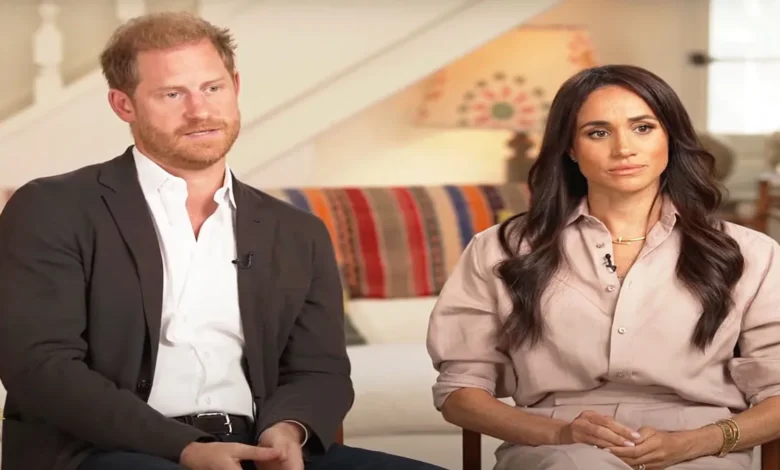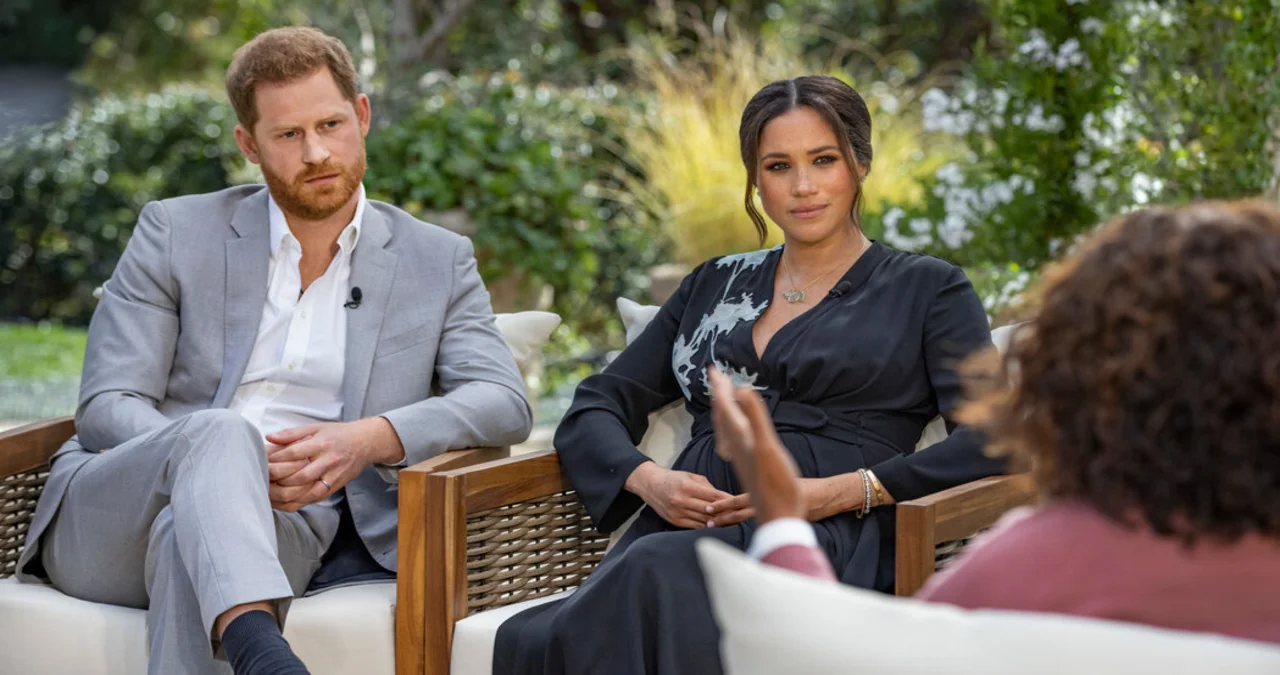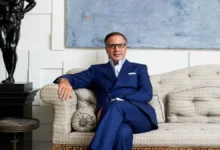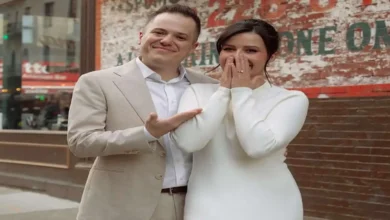Meghan Markle Interview: A Deep Dive into Royal Revelations and Global Reactions

Meghan Markle Interview When Meghan Markle speaks, the world listens. Whether you’re a staunch royalist or someone who doesn’t follow the monarchy at all, it’s hard to deny the magnetic pull of a Meghan Markle interview. From explosive revelations to heartfelt admissions, her interviews have shaped headlines, stirred debates, and shifted public perspectives. Something is compelling about her ability to blend royal intrigue with modern authenticity. Her interviews have become cultural events, redefining not only how we view the royal family but how we talk about race, mental health, and media.
The Oprah Interview: The Moment That Shook the Monarchy
It’s impossible to talk about a Meghan Markle interview without starting with the Oprah Winfrey special. This was not just an interview it was a television event that reverberated across continents. Sitting next to Prince Harry in a lush Californian garden, Meghan laid bare the struggles she faced behind palace walls. It wasn’t just the bombshells that made headlines; it was the tone, the emotion, and the raw vulnerability.
She spoke candidly about mental health, revealing that she had reached a breaking point during her time as a senior royal. The admission that she had suicidal thoughts shook viewers and sparked a wider discussion about how institutions handle mental health. Her comments about how the royal family allegedly handled concerns about Archie’s skin tone opened up global conversations about race and privilege in longstanding institutions.
The Oprah interview wasn’t just about gossip or scandal. It felt like a cultural reckoning. Meghan Markle, an American biracial woman, brought a different lens to royal life. Her words forced both the media and the monarchy to take a hard look at themselves.
Media Scrutiny and the Struggle for Autonomy
Another recurring theme in every Meghan Markle interview is the role of the media. Meghan has consistently expressed how difficult it was to be under relentless public scrutiny, particularly from the British tabloid press. She has spoken about the double standards, the fabricated stories, and the toll it took on her well-being.
From her earliest days with Prince Harry, Meghan was often compared unfavorably to other royals, particularly Kate Middleton. Headlines dissected everything from her body language to her fashion choices, often with a racially tinged undercurrent. Meghan pointed out how she felt unprotected by the royal institution, saying she was essentially left to fend for herself against an aggressive media landscape.
Her interviews often spotlight how this scrutiny wasn’t just irritating it was debilitating. The barrage of negativity played a significant role in the couple’s decision to step back from royal duties. Meghan has used her platform to challenge media narratives and call for a more responsible, ethical form of journalism.
A Fresh Perspective on Royal Life
What makes every Meghan Markle interview so compelling is that she offers a completely fresh take on royal life. She’s not bound by centuries of tradition or etiquette. She speaks plainly, like someone who’s seen behind the curtain and isn’t afraid to say what she found there. In doing so, she makes the royal family feel more human, more flawed, and certainly more complex.
Unlike previous royal spouses, Meghan didn’t come from aristocracy. She was an actress, a humanitarian, and a self-made woman. Her transition into royal life was jarring not just for her, but for an institution that thrives on continuity. Her interviews reflect that disconnect. She talks about learning how to curtsy moments before meeting the Queen, about navigating an unfamiliar system of titles and protocols, and about trying to find her footing in a world that wasn’t quite ready for her.
Through these revelations, she gives audiences a rare look into the intricacies of royal life—the good, the bad, and the archaic. It’s that outsider-insider perspective that makes her words resonate so powerfully.
Mental Health and Breaking the Silence
One of the most powerful and recurring topics in any Meghan Markle interview is mental health. She’s been unapologetically honest about her struggles, especially during her time as a working royal. This honesty is not just rare; it’s revolutionary for someone in her position.
When Meghan talked about feeling isolated and desperate while pregnant with Archie, it marked a significant moment in public discourse. Mental health has long been a taboo subject, particularly in elite institutions. Her courage to speak out was not just personal—it was political. It challenged the idea that status and wealth protect you from emotional turmoil.
By being open about therapy, trauma, and the importance of emotional support, Meghan has become a vocal advocate for mental wellness. Her interviews are often peppered with insights that encourage others to seek help, speak up, and break their silence. She’s helping to normalize mental health discussions, one interview at a time.
A Voice for the Voiceless
Meghan Markle has consistently used her interviews to highlight issues beyond her own experience. She talks about gender equality, racial justice, and systemic inequality. She sees her platform as a responsibility. In many ways, her interviews double as activism.
She has spoken about the importance of representation, both in the media and in leadership. She often emphasizes that what we consume affects how we see the world—and each other. This kind of perspective adds weight to her interviews, elevating them beyond personal narrative into the realm of social commentary.
Whether she’s advocating for paid parental leave or amplifying the voices of marginalized communities, Meghan brings a thoughtful, intentional energy to every conversation. She’s not just there to tell her story—she’s there to challenge others to rethink theirs.
Life After the Royal Exit
Since stepping back from royal duties, Meghan Markle’s interviews have taken on a different tone. She seems more relaxed, and more in control of her narrative. Interviews now often focus on her life in California, her work with the Archewell Foundation, and her ventures into media production.
There’s still a curiosity about her royal past, of course. But Meghan is increasingly shifting the focus toward the future. She talks about motherhood, philanthropy, and building a life grounded in purpose. The shift is noticeable and refreshing. It’s a reminder that she isn’t just a figure of controversy—she’s a woman evolving, learning, and leading.
Her post-royal interviews offer a blueprint for how to regain agency in a world that often strips women of it. She talks about boundaries, healing, and the power of storytelling. There’s a clarity in her voice that speaks to hard-won peace.
Criticism and Public Perception
Of course, not all Meghan Markle interviews are met with praise. She remains a polarizing figure. Some view her as brave and groundbreaking, while others see her as attention-seeking or disingenuous. Her interviews often reignite debates about loyalty, privacy, and the media’s role in shaping narratives.
Critics argue that her interviews are too controlled and too polished. They question the motivations behind her revelations. Supporters counter that Meghan is reclaiming her voice in a world that tried to silence her. What’s clear is that every interview becomes a lightning rod for public opinion.
Still, Meghan never seems to back down. She listens, she adapts, but she doesn’t retreat. Her ability to stand firm, even in the face of backlash, is part of what makes her interviews so riveting. They’re not just about spilling tea; they’re about reclaiming power.

Meghan and Harry: A Dynamic Duo
Every Meghan Markle interview feels amplified when Prince Harry is by her side. Their dynamic is fascinating to watch. They balance each other, back each other up, and share a common goal: to rewrite the narrative. Interviews with both of them feel more like collaborative storytelling than simple Q&As.
They talk about parenting, shared trauma, and building a new life together. They appear unified, strong, and deeply committed to each other and their causes. Together, their interviews paint a picture of resilience, love, and partnership.
This sense of unity is perhaps what scares their critics the most. They’re not just surviving—they’re thriving. And they’re doing it on their terms.
The Future of Meghan Markle Interviews
As Meghan continues to evolve, so will her interviews. She’s not one to stay silent or stay still. Whether she’s launching a new podcast, working on a documentary, or collaborating with nonprofits, her voice will remain part of the cultural conversation.
Future Meghan Markle interviews are likely to focus less on palace drama and more on purpose-driven work. And that’s not a lossit’s a gain. Because Meghan is at her best when she’s pushing boundaries, challenging norms, and lifting others as she climbs.
Audiences will continue to tune in, not just for the intrigue but for the insight. Meghan has proven that her story is about much more than tiaras and tabloids. It’s about identity, resilience, and using your voice, no matter the cost.
Quick Bio Table: Meghan Markle
| Full Name | Rachel Meghan Markle |
| Date of Birth | August 4, 1981 |
| Birthplace | Los Angeles, California, USA |
| Occupation | Actress, Duchess, Philanthropist |
| Spouse Prince | Harry, Duke of Sussex |
| Notable Interviews | Oprah Winfrey, The Cut, Variety |
| Children Archie | Harrison & Lilibet Diana |
| Media Ventures | Archewell Productions, Spotify |
| Public Perception | Polarizing yet influential figure |
| Advocacy Focus | Mental Health, Gender Equality |
Frequently Asked Questions (FAQs)
What was the most talked-about Meghan Markle interview?
The Oprah Winfrey interview is by far the most talked-about Meghan Markle interview. It featured revelations about mental health, racism, and the royal family that shocked viewers worldwide.
Why does Meghan Markle give interviews?
Meghan gives interviews to share her side of the story, highlight social issues, and promote her advocacy work. They also serve as a way to challenge media narratives and correct misinformation.
How has public opinion changed after her interviews?
Public opinion is split. Some people have gained a newfound respect for her courage, while others remain skeptical. Regardless, her interviews have undeniably shaped how people view the monarchy and media.
Is Meghan Markle still part of the royal family?
Yes, Meghan is still part of the royal family by marriage, but she and Prince Harry are no longer working royals. They have stepped back from official duties and are focusing on their independent projects.
What topics does Meghan often discuss in interviews?
She frequently speaks on mental health, race, gender equality, media ethics, and motherhood. Her interviews blend personal experiences with broader social commentary.
Where can I watch Meghan Markle’s interviews?
Most of her major interviews, like the Oprah special, are available on streaming platforms like CBS, YouTube, or official royal news coverage sources.
Has Meghan Markle done any podcasts or written content?
Yes, she hosted a podcast called “Archetypes” on Spotify, where she explored the labels and stereotypes that hold women back. She also contributes to various written platforms through Archewell.
Why is Meghan Markle so controversial?
Her outspokenness, especially against royal traditions and media practices, has made her a polarizing figure. Supporters see her as brave; critics see her as disruptive. Either way, she commands attention.
What impact has she had on the monarchy?
Her interviews and public stance have forced the monarchy to confront modern issues like race and mental health. They sparked a global conversation and arguably reshaped the institution’s public image.
Will Meghan Markle continue doing interviews?
Most likely, yes. As she continues her advocacy and media work, interviews will remain a key way for her to connect with audiences and share her message.







